Pigs, polls and primates: 2015 in politics
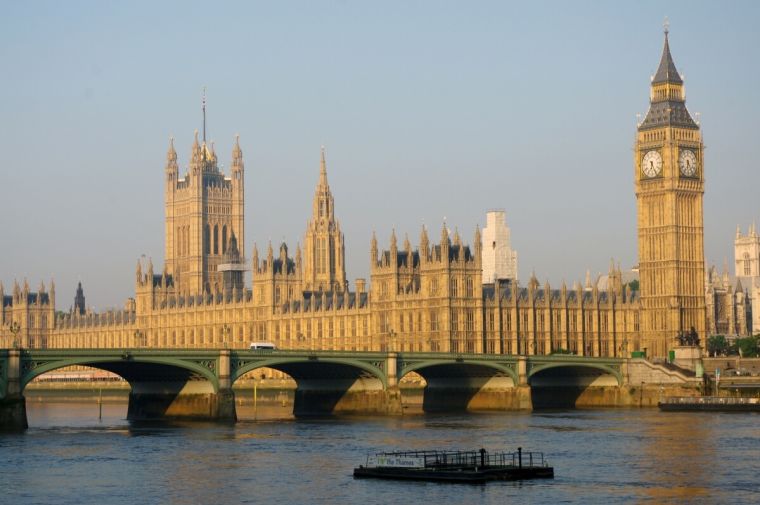
When the strains of pre-election fever were building in January and "long-term economic plan" was on repeat, who would have thought 2015 would end the way it has?
Who would have thought Labour, who began the year struggling with a left-winger from north London, would elect a new leader who was even more left-wing from even further into north London? Who would have thought we would have an evangelical leading the Liberal Democrats? And who would have thought David Cameron would find himself having to deny a pre-marital incident with a pig?
Look, it's embarrassing for me, too.
— Cameron's Pig (@CameronPig) September 20, 2015
1. Meddling Mitres:
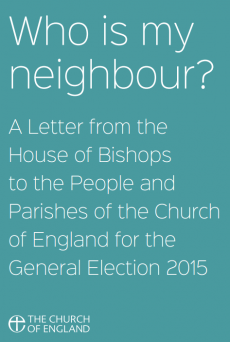
This year was much anticipated politically because of one event on May 7, but before we got to that the House of Bishops of the Church of England released a pastoral letter. It was a direct political intervention.
The 52-page letter addressed a whole range of topics from the role of the state and the family to the economy, welfare and defence. The bishops criticised "our almost-moribund political culture" but encouraged Christians to engage and ask how we can "build the kind of society which many people say they want but which is not yet being expressed in the vision of any of the parties".
Despite deliberately not advocating for any party, the intervention was widely praised by the left and criticised by the right. Conservative MP Nadine Dorries said the bishops had a "very definite left-wing leaning to their message" whereas Stephen Timms MP, chair of Christians on the Left, was more complimentary.
Welcome, thoughtful and authentically Christian reflection on the election debate from @c_of_e https://t.co/mIq3AKsKqi
— Stephen Timms (@stephenctimms) February 17, 2015Some Tories who criticised the letter gave the impression they hadn't actually read it. The bishops were noticeably measured in their comments and took pains to praise Cameron's emphasis on family and the surge in employment as well as offering constructive criticism of some aspects of the government's welfare reforms.
The backlash appeared to be more a hangover from the Church's sparring with Thatcher in the 1980s than anything the politically astute bishops had said this time around.
2. Poll time
It was the first election where the date was known years in advance. The long campaign seemed to have begun sometime mid-2012 and by the time May 7 came round everyone was thoroughly fed up.
But what was most memorable was how spectacularly wrong the pollsters were. After the prediction of a hung parliament, the Conservatives' win stunned the nation (needless to say we quickly forgot this and treat ComRes and YouGov as a reliable source of authority again).
There were moments of hilarity among what was considered a generally a dull campaign by the Tories against an incompetent Labour, a confused Lib Dems and a single-issue UKIP. Miliband's "it ain't right" with Russell Brand and Sky's #GeneralAffection video were personal highlights.
There were also moments of vitriol-slinging. The constant personal attacks on Ed Miliband by the Conservatives added a sour tone to the whole debate. Michael Fallon's accusation that Ed would stab the UK in the back in the same way he did his brother was particularly spiteful and unnecessary.
Similarly the protests and self-righteous rage from a minority who graffitied Whitehall with hateful slogans after the election were equally pitiful.
The overall feeling, though, on the morning of Friday 8 May, was how brutal democracy could be. Ed Balls imagined it would be the day he'd move in to 11 Downing Street. Instead he joined the ranks of the unemployed. Similarly Vince Cable, one of the government's most senior ministers as Business Secretary, lost his seat after being an MP for 18 years.
The Christian candidates experienced the joys and miseries of democracy alongside everyone else. You can read how they fared here.
3. The Marauding Scots
The glaring addition to the political map on May 8 was a vast yellow mass that had emerged to replace Labour in Scotland.
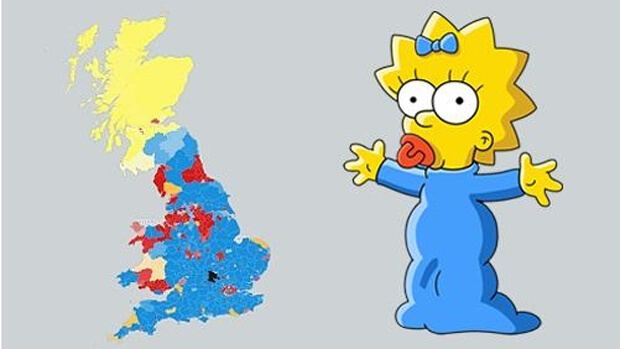
The SNP's sudden leap to become the third largest party hit Westminster like a cold salmon to the face and Mhairi Black's rousing maiden speech as the youngest MP since at least 1832 added insult to injury.
With little else to do, the SNP took to dominating Commons' debates, irritating Labour and Conservative MPs in equal measure.
As the SNP arrived in Westminster en masse, David Cameron started talking of "One Nation Conservatives" despite having run a deliberately divisive election campaign.
Whether or not this has resulted in any difference in approach is debatable. A certain Mr Osborne might have put an abrupt end to that narrative with his now-thwarted attempt at tax credit cuts.
But as the Tories settled down to enjoy life without the Lib Dems, two relatively unknown characters appeared who were to become household names.
Timothy James Farron
After a disastrous campaign from the Liberal Democrats Nick Clegg promptly resigned and Tim Farron emerged, being what many considered an odd combination – an evangelical Christian and a liberal.
Farron set about proving to a suspicious media it was a legitimate combination. The general consensus was that he did a good job.
What is proving more of a challenge for Farron is convincing the world that the Lib Dems, who now have the same number of MPs as the Democratic Unionist Party (DUP), are still relevant.
Jeremy Bernard Corbyn
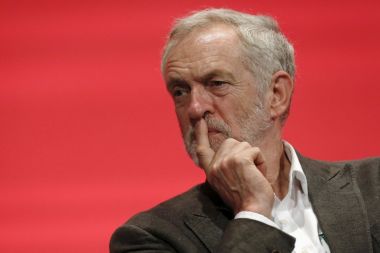
The shock of such a resounding defeat at the general election left Labour reeling and a leadership vacuum emerged. Into the breach stepped Jeremy Corbyn.
Despite not having enough support from his fellow Labour MPs to make the ballot paper (Frank Field and others agreed to nominate him to ensure "a fair debate"), Corbyn took the public by storm.
Corbs has rebelled against his own party more than 500 times. But his supporters loved him all the more for his individuality. He won the leadership election more convincingly than Tony Blair, with nearly 60 per cent of the vote.
Some of the intense scrutiny Corbyn has faced seems sensible and necessary. The investigations into his support of the IRA and his closeness to Hamas are particularly important. However the ridiculous nonsense about whether he bowed or nodded as he laid a wreath on Remembrance Day was laughable at best.
Whatever you think of Corbyn's politics, his integrity and determination to stick to his beliefs is laudable. His direct and withering style has changed the tone of PMQs for the better and his sincere care for people is noticeable.
But it is widely acknowledged he is not going to be a Prime Minister. So the longer he remains as leader, the more likely it is the Conservatives will rule for the next 10 or possibly 15 years. No wonder Labour MPs are looking so sullen on the opposition benches. The problem they have is that he's still adored by Labour members and until that changes, they have no hope of evicting him.
Cameron must rue his promise not to run for a third term.
Credit to the Lords
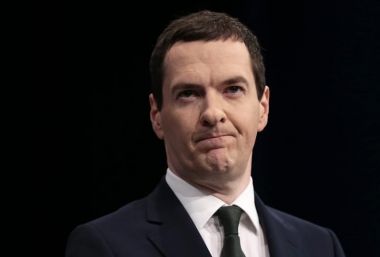
It seemed the whole country was unified in its hatred of George Osborne over tax credits. Not only did left wing MPs and pressure groups protest but right-wingers were also dismayed at the sudden and drastic cuts announced in the Chancellor's budget. So much for One Nation. So much for Prime Minister Osborne.
What followed was a fascinating political battle. In the absence of any credible opposition, the House of Lords broke convention and voted to delay the cuts until transitional support had been brought in.
A visibly livid Chancellor appeared shortly afterwards outside the Treasury saying through gritted teeth he would "listen". However in a dramatic u-turn he announced weeks later in the autumn statement he would forego any changes to tax credits altogether.
But what followed topped the whole debacle off. John McDonnell pulled his personally annotated copy of Chairman Mao Zedong's infamous "Little Red Book" out of back pocket and lobbed it over to the Chancellor. It was an early Christmas present. Osborne did not even need to respond. The headlines were made. And you can bet the personal scribbles in that little red book will make a reappearance in the build up to the 2020 election.

A just war?
In a dramatic end to the year, Cameron finally got his wish of a Commons vote on bombing ISIS in Syria. The debate on social media was dominated by supporters of the Stop the War coalition who were accused of being vitriolic and aggressive but in Parliament the discussion was more balanced.
Justin Welby gave a measured and thoughtful defence of bombing in the House of Lords before dashing back to watch Hilary Benn steal the show in the House of Commons. Benn's barnstorming speech was hailed as the finest of his career but critics said his father Tony, would be turning in his grave at his son's support of war.
In the end, after ten and a half hours of debate, Tim Farron's U-turn and 66 Labour MPs voting in favour of air strikes helped Cameron win with a comprehensive majority of 174. Hours later, the RAF launched its first raid on ISIS-held oil fields.
Christian MPs were fairly equally split in how they voted and you can read more here.











